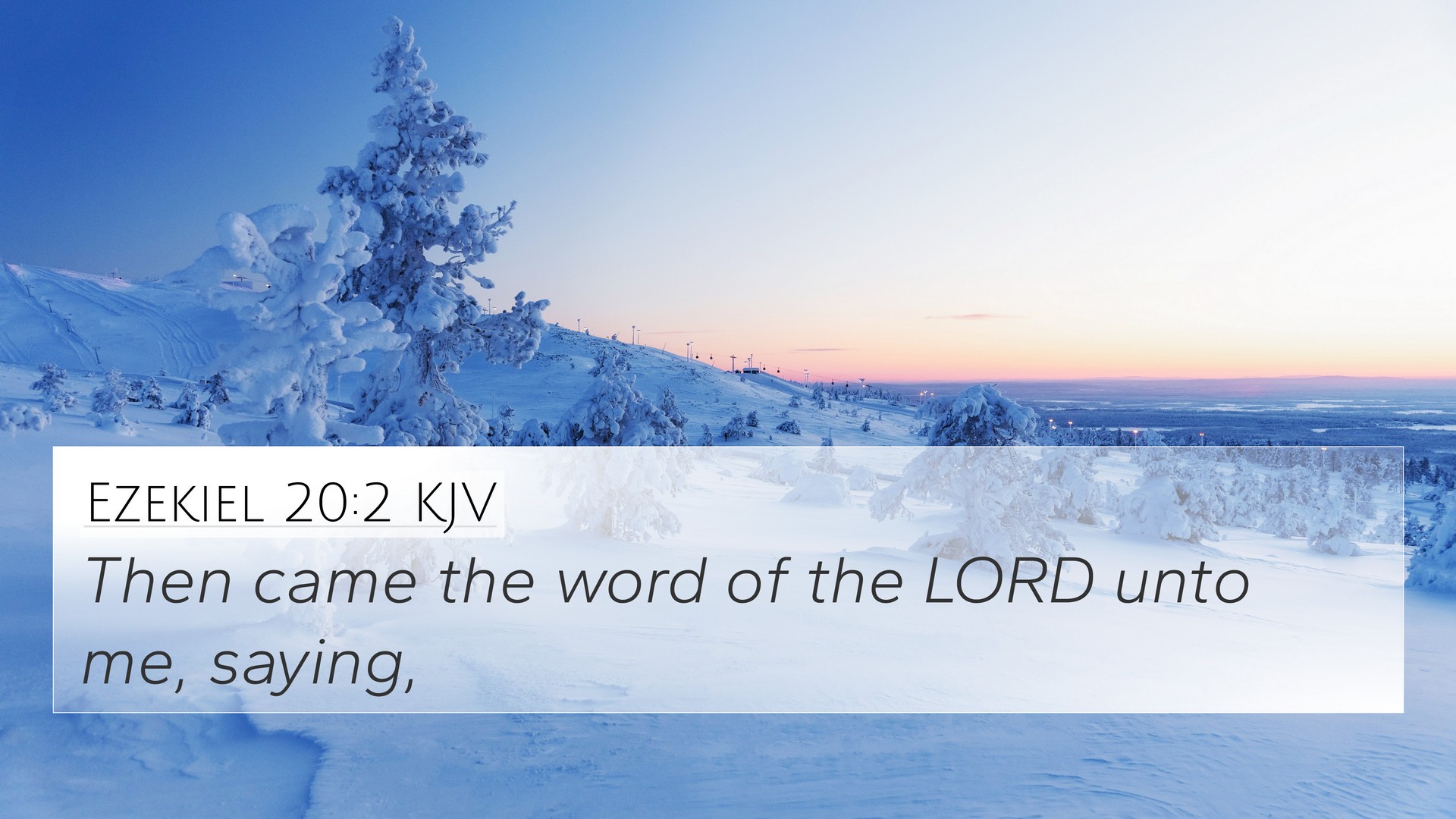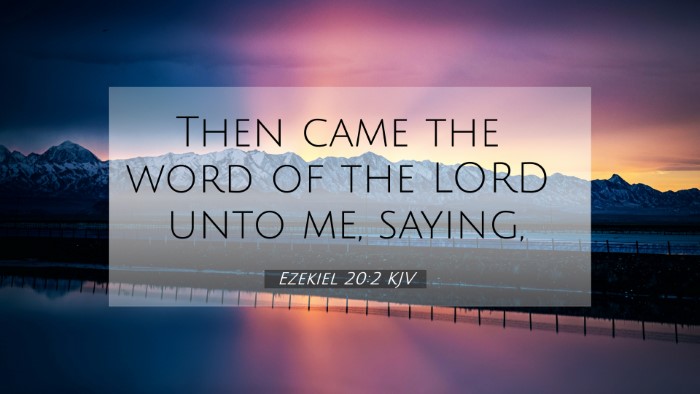Ezekiel 20:2 - Meaning and Interpretation
Bible Verse: Ezekiel 20:2
In Ezekiel 20:2, the context revolves around a prophetic revelation aimed at Israel, specifically addressing the leaders who inquire of the Lord amidst their circumstances. The verse serves as a platform for dialogue between God and the people, highlighting their disobedience and the need for repentance.
Summary of Insights from Public Domain Commentaries
This verse invites reflection on several key themes, resonating through the insights of scholars such as Matthew Henry, Albert Barnes, and Adam Clarke.
- Divine Judgment and Mercy: This verse signifies God's readiness to communicate, despite Israel's failure. Commentary indicates that God is always willing to engage with His people, even in their sin.
- Addressing Leaders: The inquiry comes from the leaders, pointing to the responsibility of spiritual leadership. Barnes highlights the expectation of leaders to guide the people back to righteousness.
- Inquiry and Response: God’s questions serve a dual purpose: to reveal the hearts of the inquirers and to challenge them to confront their own actions.
- Historical Context: Reflecting back on Israel's history, Clarke notes that God’s message often recalls their past failures to highlight the need for a contrite heart.
- The Role of Prophecy: The prophetic tradition is significant in this context, as Ezekiel serves as a voice against complacency, guiding leaders to a deeper understanding of their covenant with God.
- Call to Repentance: Given the backdrop of Israel's continual disobedience, the verse lays groundwork for calling them back to covenant faithfulness through acknowledgment of their past sins.
- God's Sovereignty: This passage emphasizes God’s authority and His desire for a genuine relationship, as opposed to mere ritualistic worship.
Importance of Biblical Cross-References
Understanding Ezekiel 20:2 in a broader context can be greatly aided by examining related verses that highlight similar themes of divine communication, leadership responsibility, and the importance of repentance.
Cross-References for Ezekiel 20:2
- Ezekiel 18:30: A call to repentance similar to the themes raised in Ezekiel 20:2.
- Jeremiah 29:11-13: God’s promise of plans for welfare and a hopeful future when the people seek Him genuinely.
- Isaiah 55:6-7: An invitation to seek the Lord while He may be found and to return from wicked ways.
- Numbers 14:1-4: A broader narrative of Israel's trials in the journey to the Promised Land and their repeated disobedience.
- Amos 3:7: The role of the prophets in revealing God's intentions to His people.
- Jeremiah 3:12-14: God's plea to a wayward nation, depicting the loving pursuit of His erring people.
- Hosea 6:1: A call to return to the Lord, resonating with the themes of repentance in Ezekiel.
- Matthew 23:37: Jesus expresses longing for the wayward, reflecting the heart of God for His people.
- 1 Peter 5:1-3: New Testament teachings on the responsibility of church leaders, paralleling Ezekiel’s role.
- Hebrews 4:13: Emphasizing that nothing is hidden from God's sight, which relates to the need for honest inquiry from His people.
Understanding Through Connection
This exploration of Ezekiel 20:2 not only highlights the core message but also assists in forming connections between various scriptures. For those studying the Bible, these connections provide a deeper understanding of thematic elements scattered throughout scripture.
Thematic Connections
- Repentance: The continual call to repentance resonates throughout the Old and New Testaments, serving as both a warning and an invitation.
- Leadership Accountability: God places a heavy burden on leaders, reflected from the Torah through modern church teachings.
- Divine Communication: The relationship between God and His people is marked by dialogue, evident throughout prophetic literature.
In engaging with Ezekiel 20:2, believers and seekers can benefit from tools for Bible cross-referencing, allowing for a richer study through comprehensive Bible cross-reference materials, guides, and proper methodologies in scriptural cross-referencing. This allows one to appreciate the inter-Biblical dialogue which enhances understanding of scripture as a living, interconnected testament.
Conclusion
In summary, Ezekiel 20:2 serves as a profound reminder of God’s desire to communicate with His people amidst their failures. The insights gained from public domain commentaries enrich our understanding and encourage ongoing exploration of biblical themes through the use of cross-references and thematic connections in scripture.


